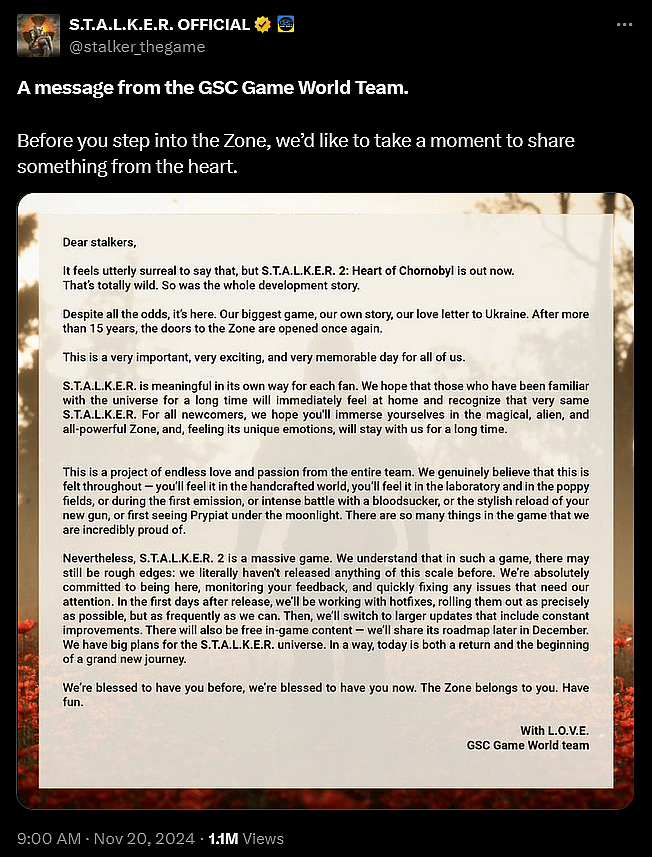‘Dishonored’ And ‘Prey’ Reboot Director Weighs In On ‘S.T.A.L.K.E.R. 2’ Review Discourse, Criticizes How “The Metacritic Ecosystem Encourages Devs To Make Safe Boring Games”
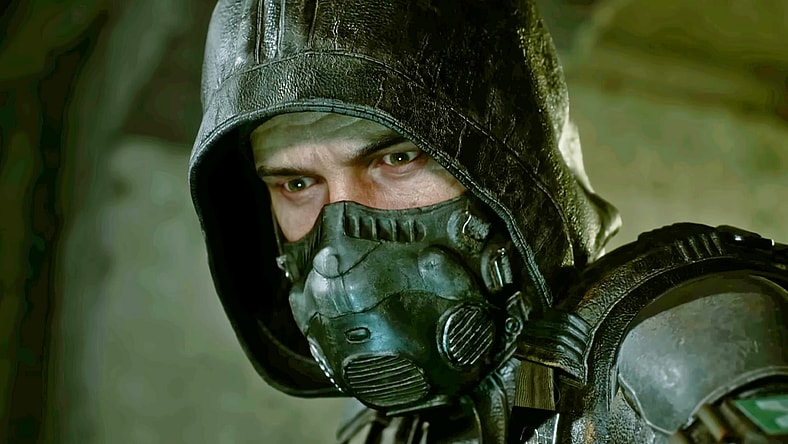
In adding another critical voice to the ongoing discourse surrounding review scores and their influence on the video game industry, Arkane Studios founder Raphaël Colantonio has shared his frustrations with the current “Metacritic ecosystem”, as he believers it only serves to stifle creativity and push developers into making “safe boring games”.
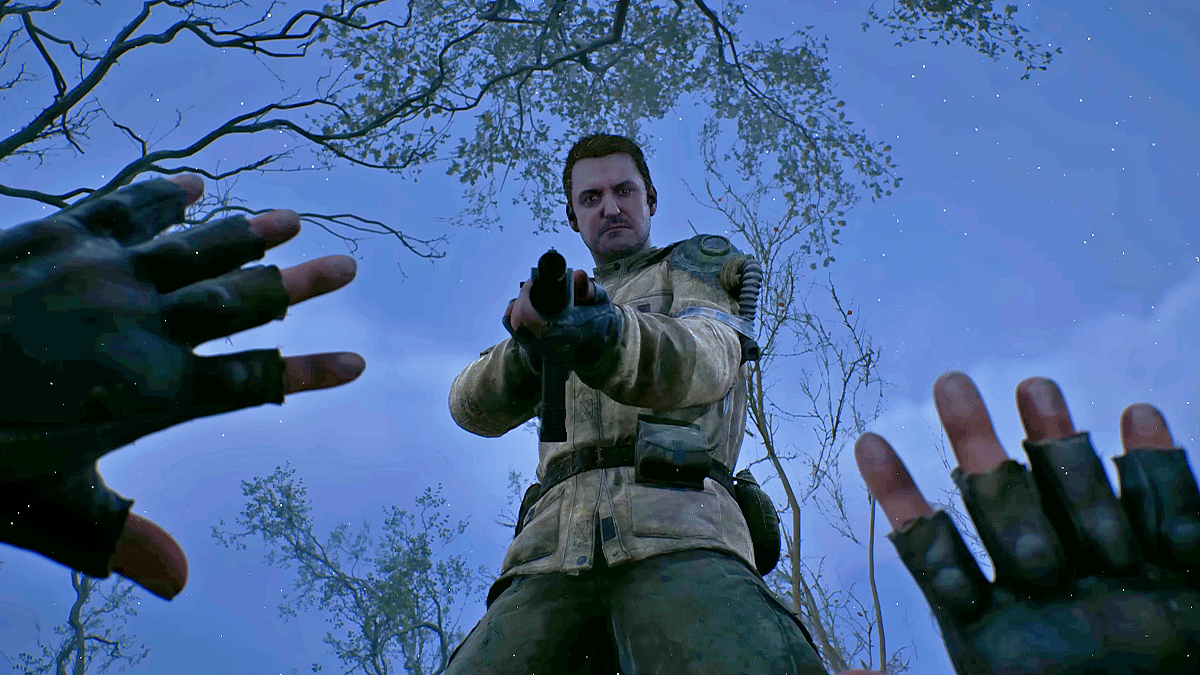
Colantonio, who during his tenure at Arkane Studios notably co-directed the first Dishonored and individually helmed Prey (2017) before leaving to open up his new endeavor WolfEye Studios, shared his thoughts on the unfortunate reverence that video game developers give to review scores on November 22nd via his personal Twitter account.
Broaching the topic in response to the criticism being leveled towards GSC Game World’s newly-released S.T.A.L.K.E.R. 2, which due to the apparent realities of both tight financial deadlines and the studio’s emergency relocation from Kyiv, Ukraine to Prague, Czech Republic, following the break-out of the current Russo-Ukranian War launched in an admittedly rough state, Colantonio bluntly lamented, “The Metacritic ecosystem encourages devs to make safe boring games.”
“As long as a game is polished at launch, you’re guaranteed a 80%, no matter how boring the game might be,” he argued. “Meanwhile, S.T.A.L.K.E.R. 2 gets a 73 [on Metacritic] because it’s a bit rough on the edges at launch. Unfair, misleading.”
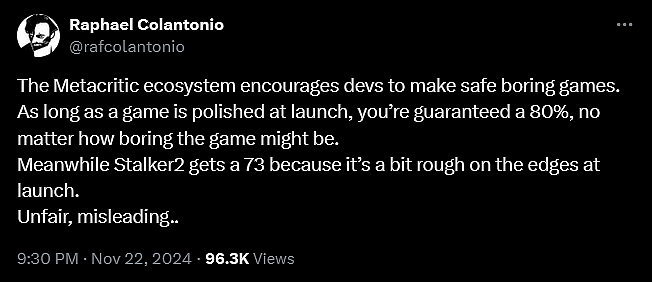
Unsurprisingly, Colantonio’s tweet would spark a significant wave of discussion, which in turn would draw additional thoughts and clarifications from the developer himself.
Asked by a fellow Twitter user, “If that’s the case then why not just wait and release the game once it’s polished? That seems more [like] a studio problem than a Metacritic/reviewer problem,” the dev asserted, “Because often the studios don’t have a choice.”
“The games are pushed out of the door due to financial realities,” he noted. “If only people knew how hard it is to make games”.
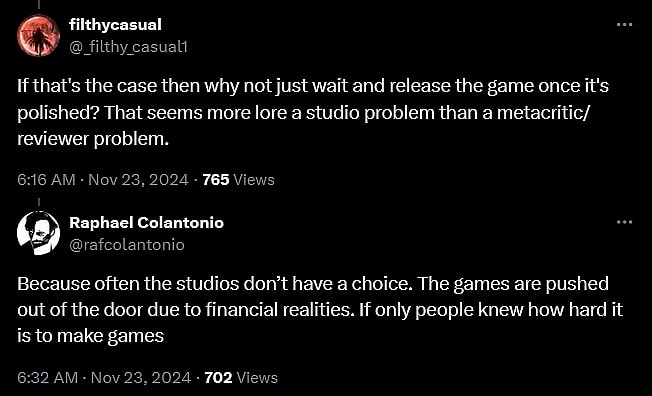
Met with resistance from another user who pushed back, “What weird thing to complain about. Yes a game that works is going to have a better score, while one that doesn’t, a lesser score”, Colantino elaborated, “A bad game with no bug has better score than a great game with bugs. Makes sense to you? It means the essence of the game is not taken into consideration, it means that 3 months later, when the great game is patched, it still has shit score. Makes sense to you?”
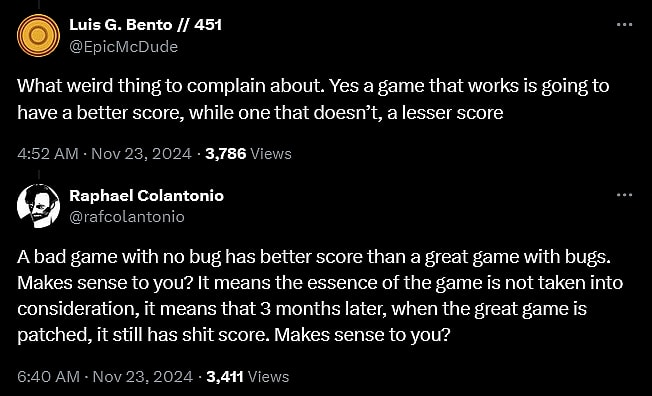
Receiving a sarcastic summary of his point, wherein a Twitter user boiled down his argument to “Metacritic system unfairly encourages developers to release products that are actually finished”, the Weird West director additionally explained, “That’s not what I said. It encourage devs to play it safe by making easy games that are easier to polish. As soon as you offer games with tons of possibilities, you open yourself to a harder game to polish at launch”.
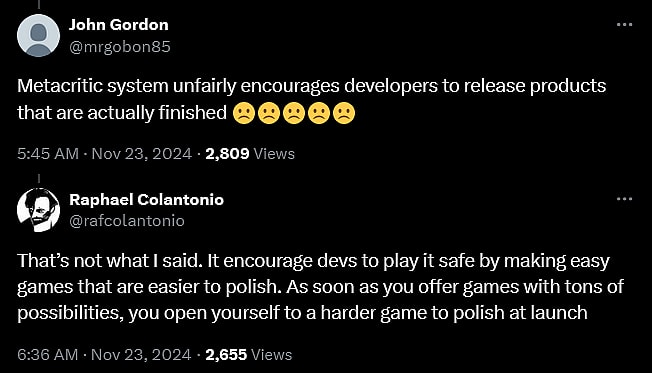
And though one user attempted to reason, “On one hand yes, on the other I think game scores should be lowered foe bugs and performance issues on launch until its fixed so devs actually fix their games,” Colantino pointed out in turn, “Except that once the issues are fixed, it’s too late, the old scores are permanent and don’t reflect the actual quality of the game”.
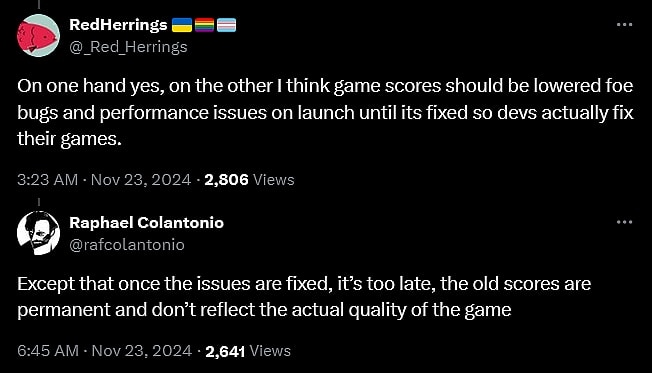
Finding that his initial tweet had prompted such strong reactions and discourse from players, Colantino returned to the topic the next day to further clarify his opinion.
“My previous post was a bit controversial,” he concluded. “Hopefully this one will be received better: 70% on Metacritic can either mean it’s a mediocre game or it’s an amazing game that has bugs at launch and needs patching. I don’t think Metacritic helps in making the difference between the 2.”
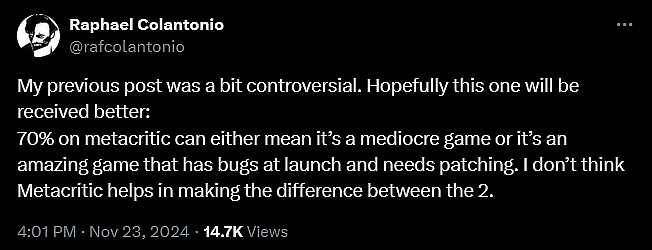
As noted above, Colantino is far from the first dev to take issue with the video game industry’s reverence of and deference to review scores.
While speaking to Gamesindustry.biz Editor-in-Chief James Batchelor this past September regarding the production of the then-upcoming Shadows of the Damned: Hella Remastered, noted and eccentric video game developer Goichi ‘Suda51’ Suda shared his opinion that recent decline in ‘experimental’ or ‘boundary-pushing’ video games like his was caused by the simple fact that “everybody pays too much attention to and cares too much about Metacritic scores.”
“It’s gotten to the point where there’s almost a set formula – if you want to get a high Metacritic score, this is how you make the game,” he said. “If you’ve got a game that doesn’t fit into that formula, that marketability scope, it loses points on Metacritic. The bigger companies might not want to deal with that kind of thing. That might not be the main reason, but that’s certainly one reason why. Everyone cares too much about the numbers.”

“Personally, I don’t care too much about the Metacritic numbers,” Suda affirmed. “I’m not really conscious of them. What’s important to us is putting the games out that we want to put out and having people playing the games we want them to be able to play.”
Expanding on his thoughts in a subsequent interview with Automaton in November, Suda further opined, “There are people who give the games we make scores like 0 or 20. I think 0 can’t possibly be a fair score, but studios like ours, who make games that disregard standard forms of expression and standard mechanics, often fall through the cracks when it comes to reviews.”
“And when things are like that, there’s really no point being concerned about scores given by the media,” he continued. “Instead, it’s the user reviews that are important. I want to know if the gamers who went out of their way to buy our new game had fun playing it, if they thought it was good or not. That’s actually constructive for us. I think it’s no use trying to get a 100 from someone who gave you a zero.”
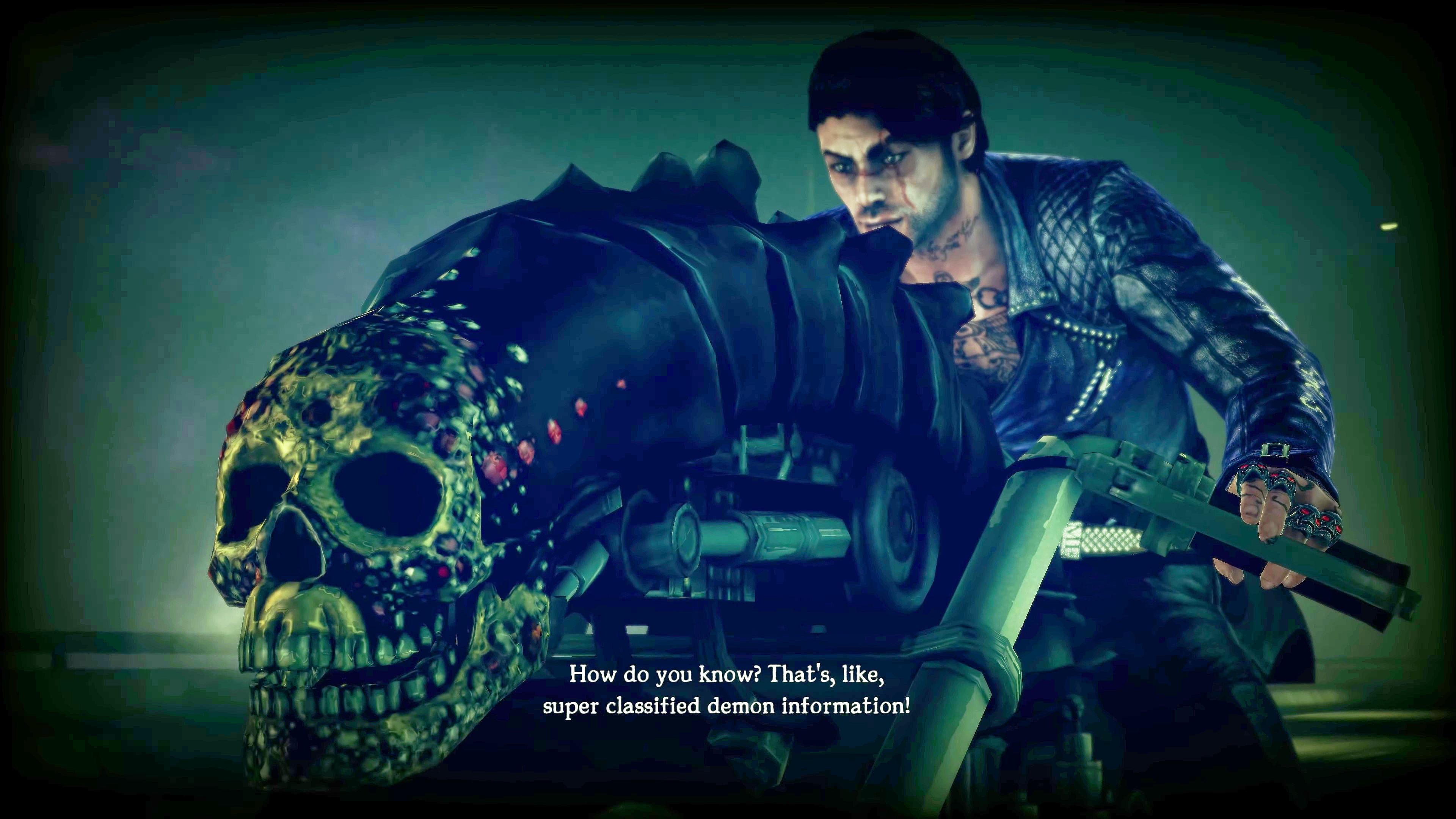
As for S.T.A.L.K.E.R. 2, since its release, GSC Games World has released an official statement assuring players that not only do they recognize that “there may still be rough edges”, but that they are also committed to providing both “hotfixes” and “larger updates” to address any issues.
